第53章 THE MEMORABLE HYMN.(2)
The patriot-warrior sings as he hastens to battle; to the strains of martial music he advances to meet the foeman; and even thus the heart of our all-glorious Champion supplies Him with song even in the dreadful hour of His solitary agony. He views the battle, but He dreads it not; though in the contest His soul will be "exceeding sorrowful even unto death," yet before it, He is like Job's war-horse, "he saith among the trumpets, Ha, ha; and he smelleth the battle afar off." He has a baptism to be baptized with, and He is straitened until it be accomplished. The Master does not go forth to the agony in the garden with a cowed and trembling spirit, all bowed and crushed in the dust; but He advances to the conflict like a man who has his full strength about him--taken out to be a victim (if I may use such a figure), not as a worn-out ox that has long borne the yoke, but as the firstling of the bullock, in the fulness of His strength. He goes forth to the slaughter, with His glorious undaunted spirit fast and firm within Him, glad to suffer for His people's sake and for His Father's glory.
"For as at first Thine all-pervading look Saw from Thy Father's bosom to th' abyss, Measuring in calm presage The infinite descent;
So to the end, though now of mortal pangs Made heir, and emptied of Thy glory a while, With unaverted eye Thou meetest all the storm."
Let us, O fellow-heirs of salvation, learn to sing when our suffering time comes, when our season for stern labour approaches; ay, let us pour forth a canticle of deep, mysterious, melody of bliss, when our dying hour is near at hand! Courage, brother! The waters are chilly; but fear will not by any means diminish the terrors of the river. Courage, brother! Death is solemn work; but playing the coward will not make it less so. Bring out the silver trumpet; let thy lips remember the long-loved music, and let the notes be clear and shrill as thou dippest thy feet in the Jordan:
"Yea, though I walk through the valley of the shadow of death, I will fear no evil: for Thou art with me; Thy rod and Thy staff they comfort me." Dear friends, let the remembrance of the melodies of that upper room go with you tomorrow into business; and if you expect a great trial, and are afraid you will not be able to sing after it, then sing before it comes. Get your holy praise-work done before affliction mars the tune. Fill the air with music while you can. While yet there is bread upon the table, sing, though famine may threaten; while yet the child runs laughing about the house, while yet the flush of health is in your own cheek, while yet your goods are spared, while yet your heart is whole and sound, lift up your song of praise to the Most High God; and let your Master, the singing Saviour, be in this your goodly and comfortable example.
There is much more that might be said concerning our Lord's sweet swan-song, but there is no need to crowd one thought out with another; your leisure will be well spent in meditation upon so fruitful a theme.
II. We will now consider the singing of the disciples. _They_ united in the "Hallel"--like true Jews, they joined in the national song. Israel had good cause to sing at the Passover, for God had wrought for His people what He had done for no other nation on the face of the earth. Every Hebrew must have felt his soul elevated and rejoiced on the Paschal night. He was "a citizen of no mean city", and the pedigree which he could look back upon was one, compared with which kings and princes were but of yesterday.
Remembering the fact commemorated by the Paschal supper, Israel might well rejoice. They sang of their nation in bondage, trodden beneath the tyrannical foot of Pharaoh; they began the Psalm right sorrowfully, as they thought of the bricks made without straw, and of the iron furnace; but the strain soon mounted from the deep bass, and began to climb the scale, as they sang of Moses the servant of God, and of the Lord appearing to him in the burning bush. They remembered the mystic rod, which became a serpent, and which swallowed up the rods of the magicians; their music told of the plagues and wonders which God had wrought upon Zoan; and of that dread night when the first-born of Egypt fell before the avenging sword of the angel of death, while they themselves, feeding on the lamb which had been slain for them, and whose blood was sprinkled upon the lintel and upon the side-posts of the door, had been graciously preserved. Then the song went up concerning the hour in which all Egypt was humbled at the feet of Jehovah, whilst as for His people, He led them forth like sheep, by the hand of Moses and Aaron, and they went by the way of the sea, even of the Red Sea. The strain rose higher still as they tuned the song of Moses, the servant of God, and of the Lamb.
Jubilantly they sang of the Red Sea, and of the chariots of Pharaoh which went down into the midst thereof, and the depths covered them till there was not one of them left. It was a glorious chant indeed when they sang of Rahab cut in pieces, and of the dragon wounded at the sea, by the right hand of the Most High, for the deliverance of the chosen people.